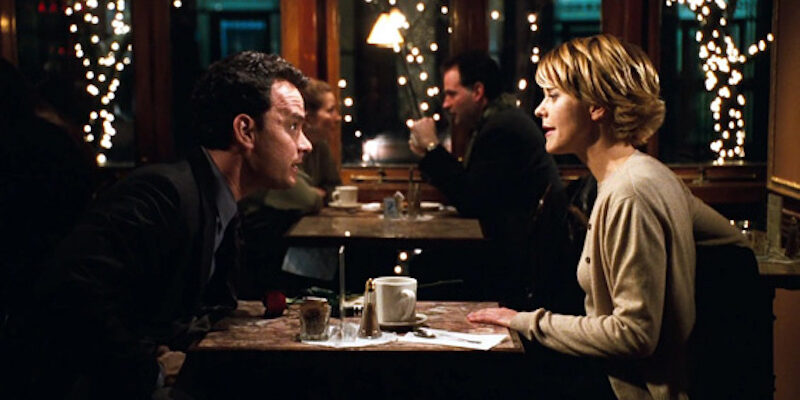The latest installment of Mission: Impossible showcases perhaps Hollywood's last movie star, Tom Cruise, in all his romantic heroism.
Romancing Creative Destruction
Creative destruction is the engine of capitalism—the dynamism whereby new products and new markets displace old ones, reordering society and lifting the rich and the poor a little farther up from the mud. A new Ford replaces a horse-drawn carriage, and suddenly travel is cheap and the streets are clean. Of course, it is rather a hard bargain for the blacksmith and the horse, one of whom may end up on the dole and the other in a bottle of Elmer’s. But that’s life. Or at least, that’s capitalism.
Yet, apart from a few libertarians, who today defends creative destruction? Our political moment appears torn between the creative promises of capitalism, promises to make us all better off, and the globalizing demolition of traditions where “all that is solid melts into air.” And what good is a new Ford to a lost soul? So the challenge for today’s lovers of liberty is this: how do we preserve our commitment to free markets while also preserving and passing on the tacit knowledge of the customs and trades that free markets destroy?
On December 18, the hit movie You’ve Got Mail turned 25. It’s a simple romcom: Tom Hanks as Joe Fox, heir to Fox Books, and Meg Ryan as Kathleen Kelly, owner of The Shop Around the Corner, do battle in a high-stakes showdown between the soulless big box corporation against the cozy independent shop in Manhattan’s Upper West Side. Each is unhappy in a relationship, and so, of course, each falls for the other. So far, we are firmly in the realm of a Hallmark Christmas special, and the sentimentality is almost cloying. But this caramel crust hides a bittersweet nugget. Because the big box corporation wins, boots the adorable, sympathetic Meg Ryan to the curb, and even coopts the bleeding-heart liberal to headline its Christmas marketing campaign.
The film’s gauzy tone is essential to make its hard truths digestible. If we were ever in doubt that it wouldn’t work out for Kathleen Kelly in the end, we’d hate Joe Fox and his soulless Fox Books. We’d weep as she closes her shop for the last time.
Rare for any age of Hollywood, and even rarer among romcoms, the film is remarkably honest in its depiction of the pros and cons of business. Yes, Kathleen Kelly’s adorable shop is charming and personal in a way Fox Books could never be—but buying your kid a few picture books will set you back seventy bucks, and those are 1998 dollars, long before Bidenflation. When the big box superstore opens, more children are able to enjoy its delights. Capitalism brings within reach of many what was once within reach of only the few. (Let that truth not be forgotten!)
Yet capitalism is soulless. (Let that truth not be forgotten, either!) Fox Books really does survive on “cheap books and legally addictive stimulants.” It’s not something that can build a community. And here is where You’ve Got Mail can speak to our own moment, especially the creative destruction that is upending our lives. Kathleen Kelly, through her little shop, is embedded in a tightly-knit social fabric. She isn’t rich, but her friendships are strong, and her much-beloved mother impressed on her a noble character. By contrast, Joe Fox is the scion of a wealthy but dysfunctional family. This modern American dynasty is a wreck of failed marriages, so much so that he has an 11-year-old aunt and a 4-year-old half-brother. Joe Fox is the only one holding them together, but he is on track to continue down the same loveless path as his father before him, and his victory would be just as hollow.
Happily, that isn’t how things turn out. Instead, the film’s happy conclusion requires capitalism to do some soul-searching, to recognize its own total inadequacy, and to seek out what it needs in the very ways of life it destroyed. It is necessary for those in the vanguard of progress to fall in love with the people and old forms caught up in its creative churn.
Naïve libertarians sometimes forget what holds the world together. (And no, it isn’t profit.) The destruction in creative destruction is very real, and it reaches deeper than mere horseshoes. Capitalism simply cannot sustain spiritually-rich communities by itself, even among the Joe Foxses who are profiting most from it. (Perhaps especially not among those who are profiting most from it.). Yet the populist right is wrong to turn toward a reactionary nostalgia. The film’s left-leaning luddite waxes grandiloquent about “lone Jeffersonian reeds” standing tall in the dry sands of progress, but he is really only propping up his own ego. The New Right is perfectly just in faulting the old Reaganites for blithely overlooking the “destruction” in creative destruction. Fair enough. The old right doesn’t understand why it needs the Kathleen Kellys of the world, the shopkeepers who are preserving generations of wisdom in their charming and everyday lives, lives whose inefficiency is about to be steamrolled. But sometimes I think the New Right doesn’t understand why it needs the Joe Foxses, the businessmen and free marketers who cut costs, pry open new markets, and bring us all cheap books and tall coffees.
This Yuletide, as we gear up for what is certain to be the most political year in a generation, consider curling up with a classic confection of a romcom from a time when politics could be safely left in its own corner.
The film brilliantly ties the souls of its characters to the politics of creative destruction. And it does so in a way almost unthinkable in the context of today’s public sphere. Kathleen Kelly’s initial boyfriend is Frank Navasky (played by Greg Kinnear), a new left and quasi-luddite journalist who types out columns quoting Heidegger and Foucault on his Olympia Report Deluxe Electric. Joe Fox’s initial girlfriend is Patricia Eden (played by Parker Posey), a neurotic New York socialite who works as a book editor. The politics and lifestyle of each couple seem like a perfect match: Kathleen and Frank are happy Upper West Side lefties; Joe and Patricia are tough-minded capitalist careerists. As Kathleen and Joe conduct their anonymous e-romance in an AOL chatroom under the aliases “Shopgirl” and “NY152,” they discover that their very different beliefs and temperaments are not only attractive, but complementary, even necessary to each other. Kathleen is often too tied up in her idealism to recognize when she needs a dose of reality; Joe’s sarcastic realism gets the best of him and conceals how vapid his life really is. The film is about each character’s online anonymity gradually fading as love’s recognition blooms between class enemies. And the romance itself is the creation of Fox Books destroying The Shop Around the Corner.
We could use more of such creatively destructive love across partisan lines. The film was released amid the furor of the Lewinsky scandal, and yet in retrospect, those tempests seem strangely teapot-sized compared to our own political monsoons. Where nowadays every film seems tainted by the need to take a stance, veiled or otherwise, about racial politics or whatever woke totem currently captivates the left, You’ve Got Mail sails breezily above politics to tell a charming story. It treats eco-obsessions and politicized technophobia as the quaint tics of otherwise decent human beings, foibles to tolerate while getting on with the very real business of love, life—and business.
This Yuletide, as we gear up for what is certain to be the most political year in a generation, consider curling up with a classic confection of a romcom from a time when politics could be safely left in its own corner, when liberal screenwriters could celebrate capitalism, and when we could all rest easy that Tom Hanks and Meg Ryan would be safely paired off before we finished the popcorn.



